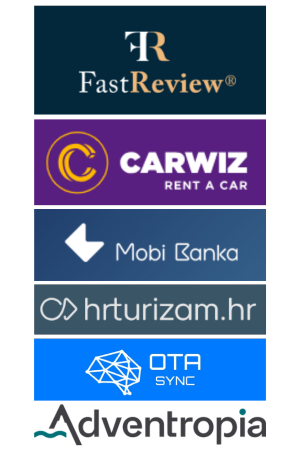
Introduction:
In a highly competitive job market, building a strong employer brand is essential for attracting and
retaining top talent in the hotel industry. Employer branding encompasses the reputation, values, and
unique attributes that make a hotel an employer of choice. In this article, we will explore the power of
employer branding in the hotel industry and discuss strategies to create a compelling employer brand
that sets hotels apart from the competition.

Defining the Employer Brand:
The first step in unleashing the power of employer branding is defining the hotel’s unique identity as
an employer. This involves identifying the hotel’s core values, mission, and employee value proposition
(EVP). The EVP communicates the benefits and advantages employees can expect, such as career
development opportunities, work-life balance, and a positive work culture.
Showcasing a Distinctive Company Culture:
A strong employer brand is built on a distinctive company culture that aligns with the hotel’s values
and resonates with potential candidates. Showcasing this culture through various channels, such as the
hotel’s website, social media, and employee testimonials, helps prospective employees gain insight
into the work environment and fosters an emotional connection.
Highlighting Employee Stories and Successes:
Sharing employee stories and successes humanizes the employer brand and demonstrates the hotel’s
commitment to employee growth and development. Featuring testimonials, success stories, and career
progression journeys can inspire potential candidates and showcase the hotel’s investment in its
employees’ professional and personal growth.
Engaging with Potential Candidates:
Engagement plays a vital role in employer branding. Actively engaging with potential candidates
through social media, career fairs, and industry events creates a positive impression and fosters
relationships. Responding promptly to inquiries, showcasing employee achievements, and providing a
glimpse into the hotel’s culture can pique the interest of top talent.
Leveraging Employee Advocacy:
Employees can be powerful brand advocates. Encouraging and empowering employees to share their
positive experiences and achievements on social media platforms can significantly enhance the hotel’s
employer brand. Employee advocacy builds authenticity and credibility, attracting like-minded
individuals who align with the hotel’s values and culture.
Prioritizing Candidate Experience:
A positive candidate experience is crucial for building a strong employer brand. Streamlining the
application process, providing timely feedback, and maintaining open and transparent communication
throughout the recruitment process are vital. Even candidates who are not ultimately hired can become
brand ambassadors if their experience is positive.
Continuous Evaluation and Improvement:
Employer branding is an ongoing process that requires regular evaluation and improvement. Collecting
feedback from employees and candidates, conducting surveys, and monitoring online reviews can
provide valuable insights into the hotel’s employer brand perception. Addressing areas for
improvement and continuously enhancing the employer brand helps stay ahead of competitors.

Conclusion:
Employer branding is a powerful tool that can attract and retain top talent in the hotel industry. By
defining the employer brand, showcasing a distinctive company culture, highlighting employee stories,
engaging with potential candidates, leveraging employee advocacy, prioritizing candidate experience,
and continuously evaluating and improving, hotels can create a compelling employer brand that
positions them as an employer of choice. Unveiling the power of employer branding enables hotels to
attract, retain, and inspire exceptional talent, fostering a thriving and successful workforce.






